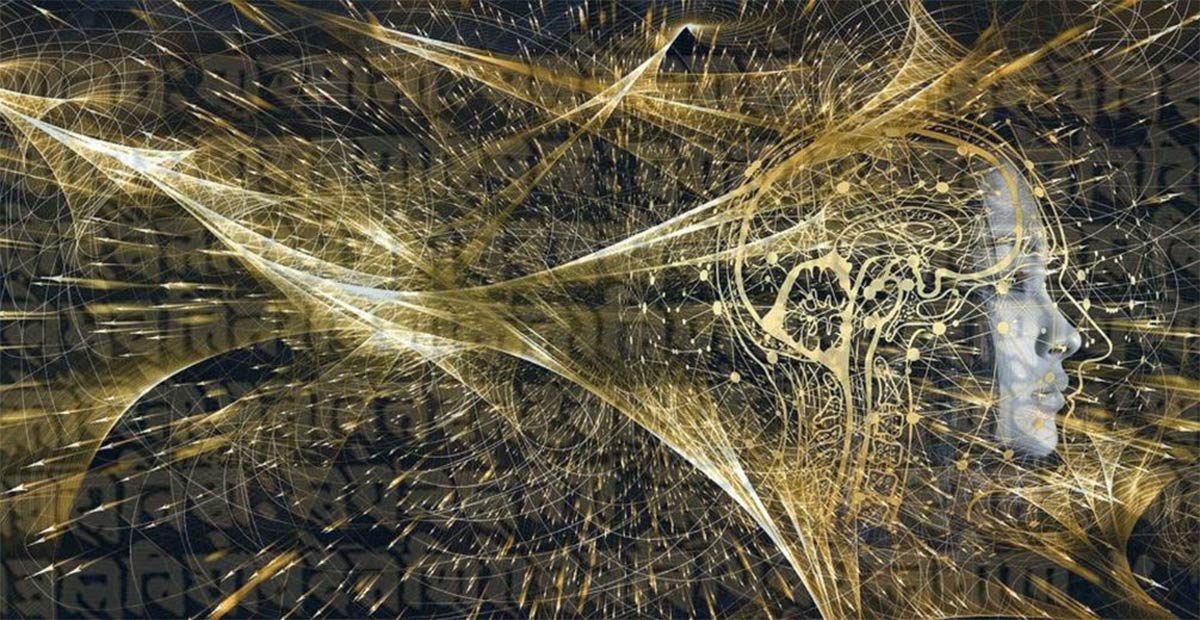
Quantum mechanics is a branch of physics that studies the behavior of matter and energy at the atomic and subatomic levels. Hinduism is an ancient dharma and philosophy that originated in the Indian subcontinent and includes a wide range of beliefs, customs, and traditions. Despite the great differences in their origins and scope, there are some similarities between quantum theory and Hindu philosophy.
One of the most striking similarities between the two is the concept of non-duality. In quantum mechanics, non-duality is expressed through the principle of wave-particle duality, which states that particles and waves are two complementary aspects of the same physical entity. In Hinduism, non-duality is expressed through the concept of Advaita Vedanta, which suggests that ultimate reality is a single, unchanging, indivisible consciousness that pervades all existence.
Another similarity between quantum theory and Hindu philosophy is the concept of reciprocity. In quantum mechanics, particles can become entangled, which means that their properties are related in a way that classical physics cannot explain. In Hinduism, the concept of interconnectedness is expressed through the principle of karma, which states that all actions have consequences and that everything in the universe is connected.
A third similarity between the two is that reality is not always what it seems. In quantum mechanics, the observer effect states that the act of observation can significantly change the behavior of particles. In Hinduism, the concept of Maya suggests that the physical world is an illusion and that the true nature of reality can only be understood through spiritual insight.
A fourth similarity between the two is that consciousness plays an essential role in creating reality. In quantum mechanics, the role of the observer in the collapse of the wave function suggests that consciousness is closely related to the nature of reality. In Hinduism, the concept of Atman-Brahman indicates that the individual self and the universal consciousness are ultimately one.
Both quantum theory and Hindu philosophy show that the ultimate nature of reality is mysterious and beyond human understanding. In quantum mechanics, the concept of quantum entanglement suggests that there may be hidden variables beyond our ability to observe or measure. In Hinduism, the concept of Brahman refers to an ultimate reality that is beyond human understanding and can only be attained through spiritual practices such as meditation and self-inquiry.
Another important similarity between quantum theory and Hindu philosophy is the concept of energy or vibration. In quantum mechanics, particles are viewed as vibrations of energy, and the universe is viewed as an interconnected network of vibrating energy fields. In Hinduism, the concept of prana, or life force energy, is central to understanding the universe and the human body. Prana is believed to flow through the body through a subtle network of energy channels called nadis and is considered the source of vitality, consciousness, and spiritual growth.
The concept of time is also another similarity between quantum theory and Hindu philosophy. In quantum mechanics, time is relative, and the concept of time dilation suggests that time slows down in strong gravitational fields or when traveling at high speeds. Similarly, in Hinduism, the concept of time is understood as relative, and the concept of the extension of time is expressed by the concept of yugas or periods of time. According to Hinduism, we are currently living in the Kali Yuga, an age of darkness and decay, but this will eventually give way to a new golden age in the distant future.
After all, both quantum theory and Hindu philosophy share a deep understanding of the mystery and beauty of the natural world. In quantum mechanics, uncertainty and the uncertainty principle state that the universe is inherently unpredictable and full of wonders. Similarly, in Hinduism, the natural world is seen as a manifestation of the divine, revered as a source of spiritual inspiration and insight.
In conclusion, the parallels between quantum theory and Hindu philosophy are many and varied. Both explore the nature of reality, consciousness, and the universe, and both show that the ultimate nature of reality is mysterious and beyond human understanding. By studying these similarities, we can gain a deeper understanding of the interconnectedness of all things and the beauty and mystery of the natural world. Both show that the ultimate nature of reality is non-dual, interconnected, and beyond human understanding. They also show that consciousness plays a vital role in shaping reality, the true nature of which is often hidden and mysterious. By examining these similarities, we can better understand the nature of the universe and our place in it.






No comments:
Post a Comment